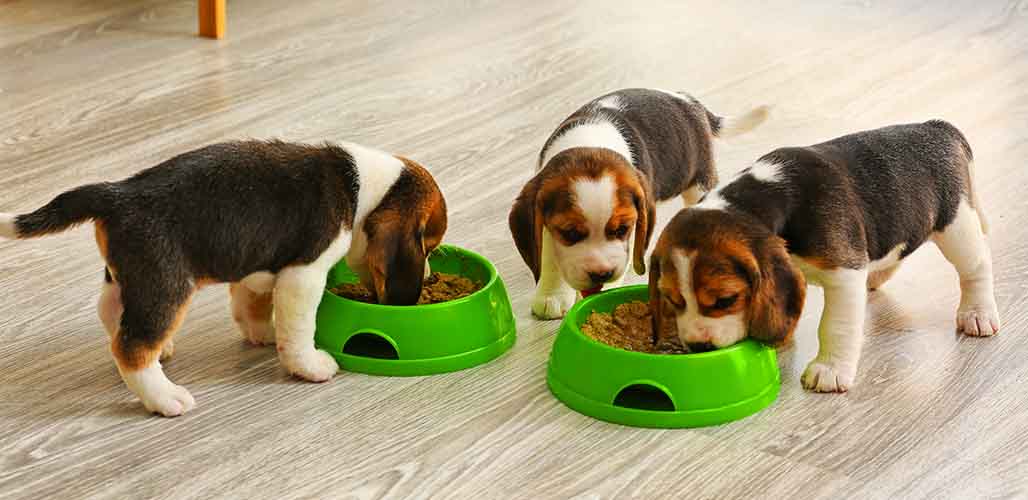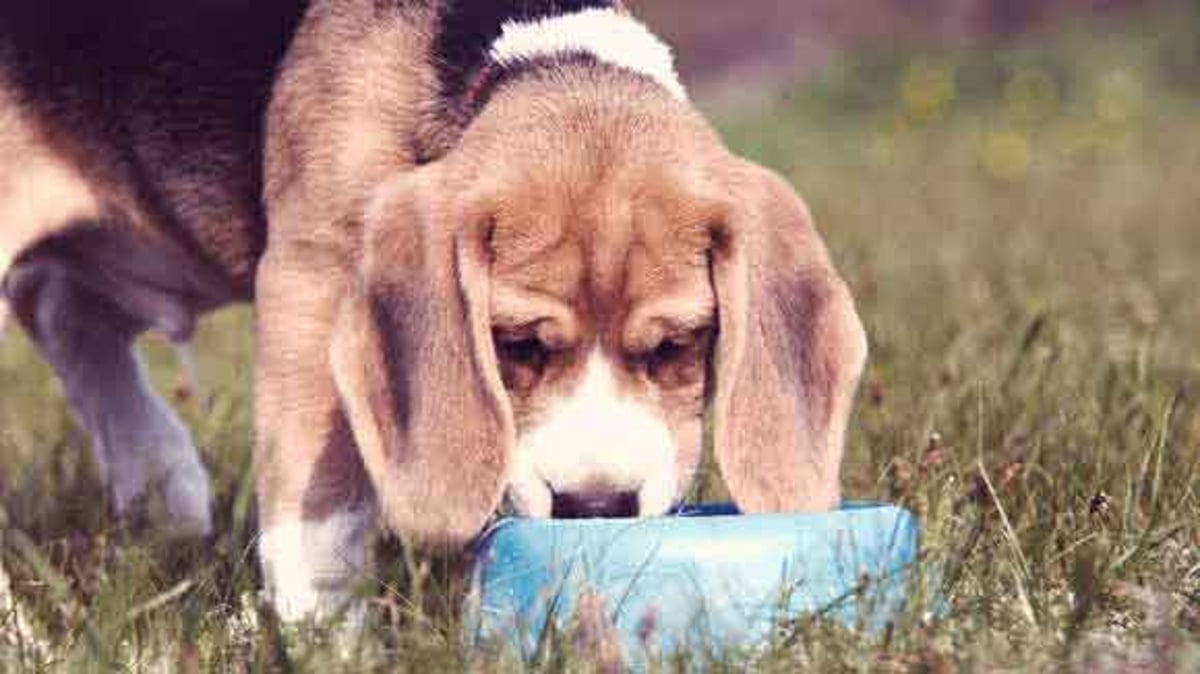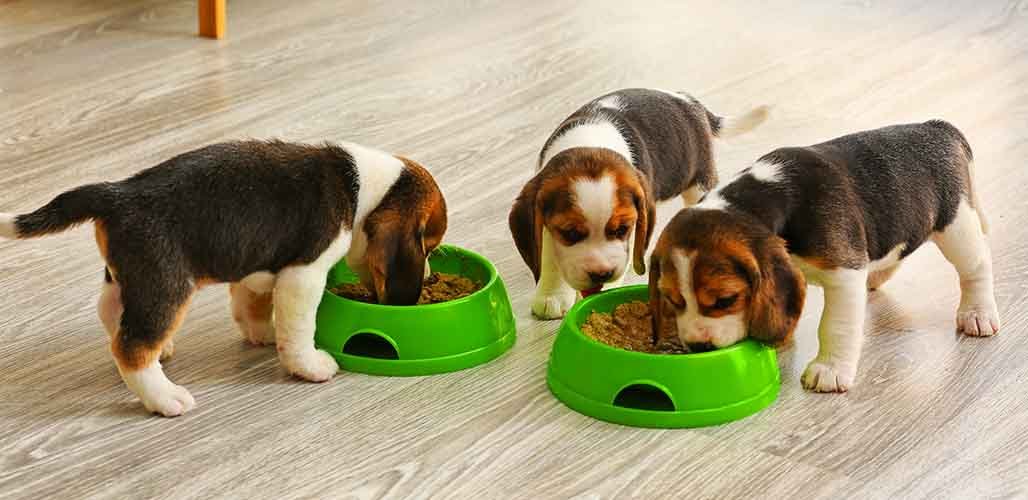When it comes to feeding a beagle, it’s essential to provide them with the right food to ensure their health and well-being. Did you know that the beagle breed is prone to obesity if not properly fed? Keeping this in mind, it’s crucial to understand the nutritional needs of a beagle and choose a diet that supports their overall health.
Beagles are energetic and highly active dogs, known for their keen sense of smell and love for food. However, their high food drive can lead to weight gain if not monitored. Therefore, it’s important to feed your beagle a balanced diet consisting of high-quality protein, healthy fats, and complex carbohydrates. You should also avoid overfeeding and opt for controlled portion sizes to prevent obesity.
When it comes to feeding your Beagle, it’s important to choose a high-quality dog food that meets their nutritional needs. Look for a balanced diet that includes protein, healthy fats, and carbohydrates. Beagles are prone to weight gain, so portion control is crucial. Avoid feeding them table scraps or excessive treats. Additionally, consult with your veterinarian to determine the specific dietary requirements for your Beagle based on age, size, and activity level.

The Best Food for a Healthy Beagle
If you have a beagle, you know how important it is to provide them with a well-balanced diet to keep them healthy and happy. Proper nutrition plays a significant role in their overall development and can prevent certain health issues as well. But what food should be given to a beagle? In this article, we will explore the dietary needs of beagles and provide you with a comprehensive guide on the best food options for your furry friend.
Understanding the Nutritional Needs of Beagles
Before we dive into specific food options, it’s essential to understand the nutritional needs of beagles. Like any dog breed, beagles require a good balance of protein, carbohydrates, fats, vitamins, and minerals to thrive. However, beagles have a tendency to gain weight, so it’s crucial to monitor their calorie intake and ensure they get enough exercise.
Beagles are generally energetic and active dogs, so their diet should provide them with enough fuel for their daily activities. They also have a unique digestive system that requires a high-quality diet to support proper digestion and prevent common digestive issues.
High-Quality Commercial Dog Food
One of the best options for feeding your beagle is a high-quality commercial dog food that is specifically formulated for their nutritional needs. Look for dog food that is made from real meat, such as chicken or beef, as the primary ingredient. Avoid dog foods that contain excessive fillers, artificial preservatives, and by-products.
Choose a dog food that is labeled “complete and balanced” to ensure that all essential nutrients are included. Look for brands that have undergone testing and meet the standards set by regulatory agencies like the Association of American Feed Control Officials (AAFCO).
It’s a good idea to consult with your veterinarian to determine the specific nutritional needs of your beagle, as they may have unique dietary requirements based on their age, activity level, and any underlying health conditions.
Raw or Homemade Diet
Some beagle owners opt for a raw or homemade diet for their furry friends. This involves feeding them raw meat, bones, fruits, vegetables, and other natural ingredients. The raw food diet is thought to mimic what a dog’s ancestors would have eaten in the wild.
If you choose to feed your beagle a raw or homemade diet, it’s essential to do thorough research and consult with a veterinary nutritionist to ensure that the diet is properly balanced. While this can be a beneficial diet for some dogs, it’s important to note that it may not be suitable for all beagles, especially those with specific health conditions or dietary restrictions.
Special Dietary Requirements
Some beagles may have special dietary requirements due to allergies, sensitivities, or health conditions. If your beagle has any specific dietary needs, it’s crucial to work closely with your veterinarian to develop a suitable diet plan. They may recommend specialized dog foods that cater to these specific needs, such as limited ingredient diets or hypoallergenic formulas.
In some cases, your veterinarian may even recommend prescription dog food that is formulated to manage certain health conditions, such as food allergies, joint issues, or kidney disease. These specialized diets can help improve your beagle’s overall health and well-being.
Feeding Tips for Beagles
When it comes to feeding your beagle, here are a few essential tips to keep in mind:
- Follow the recommended feeding guidelines provided by the dog food manufacturer.
- Avoid overfeeding and monitor your beagle’s weight to prevent obesity.
- Divide their daily food portion into two or three smaller meals to aid digestion.
- Provide fresh water at all times.
- Avoid giving them table scraps or high-fat foods, as these can cause digestive issues.
Conclusion
Choosing the right food for your beagle is crucial for their overall health and well-being. Whether you opt for commercial dog food, a raw or homemade diet, or a specialized diet, it’s important to ensure that their nutritional needs are being met. Consult with your veterinarian to determine the best food options for your beagle based on their specific requirements. Remember, a well-balanced diet and plenty of exercise are key to keeping your beagle happy and healthy for years to come.
FAQs about Beagle Nutrition
1. How much should I feed my beagle?
The amount of food your beagle needs will depend on their age, weight, activity level, and overall health. It’s best to consult with your veterinarian to determine the appropriate portion size for your beagle.
2. Can I feed my beagle human food?
While it may be tempting to share your food with your beagle, it’s best to stick to a balanced and nutritionally complete dog food. Human food can be high in fat, sodium, and other ingredients that can be harmful to your beagle’s health.
3. Are there any foods that are toxic to beagles?
Yes, there are several foods that can be toxic to beagles, such as chocolate, grapes, raisins, onions, garlic, and certain artificial sweeteners. It’s important to keep these foods out of your beagle’s reach to prevent accidental ingestion.
4. Should I give my beagle supplements?
In most cases, a well-balanced dog food will provide your beagle with all the necessary nutrients. However, if your veterinarian recommends it, they may suggest specific supplements to address any deficiencies or underlying health conditions.
5. How often should I change my beagle’s diet?
If your beagle is healthy and thriving on their current diet, there is usually no need to change their diet unless advised by your veterinarian. When introducing a new diet, it’s best to transition gradually to prevent any digestive upset.
6. What are some signs of a food allergy in beagles?
Signs of a food allergy in beagles may include itching, skin irritations, digestive upset (such as vomiting or diarrhea), ear infections, and excessive licking or chewing of paws. If you suspect your beagle has a food allergy, consult with your veterinarian for proper diagnosis and treatment.
Key Takeaways – What Food Should Be Given to Beagle?
- Feed your beagle a high-quality dog food that is appropriate for their age and activity level.
- Avoid feeding your beagle human food or table scraps, as these can be harmful to their health.
- Stick to a regular feeding schedule to help maintain your beagle’s weight and prevent overeating.
- Consider feeding your beagle a balanced, commercial dog food that includes protein, carbohydrates, and essential nutrients.
- Consult with your veterinarian to determine the best food options and portion sizes for your beagle.
Frequently Asked Questions
A beagle is a popular breed of dog known for their friendly and energetic nature. When it comes to their diet, it is important to provide them with nutritious food that meets their dietary needs. Here are some commonly asked questions about what food should be given to a beagle:
1. What are the key nutritional requirements for a beagle?
Beagles require a balanced diet that consists of high-quality protein, healthy fats, carbohydrates, vitamins, and minerals. Protein is essential for their muscle development, while fats provide them with energy. Carbohydrates provide a source of fiber and energy, and vitamins and minerals support their overall health and immune system.
It is important to choose a dog food that is specifically formulated for beagles or small breeds, as their dietary needs may vary from other dogs. Look for a dog food that lists real meat as the first ingredient and does not contain artificial additives or fillers.
2. How often should a beagle be fed?
Beagles should be fed twice a day, with the total amount of food divided into two meals. This helps to maintain their energy levels and prevents them from overeating. Avoid leaving food out all day as it may lead to weight gain or picky eating habits.
It is also important to monitor their food intake and adjust the portion sizes according to their age, activity level, and weight. Consult with your veterinarian to determine the appropriate portion sizes for your beagle.
3. Can I give human food as treats to my beagle?
While it may be tempting to share your food with your beagle, it is important to be cautious about what you give them. Some human foods, such as chocolate, grapes, onions, and garlic, can be toxic to dogs and should be avoided.
If you want to give your beagle treats, opt for dog-safe options such as small pieces of cooked chicken, carrots, or dog-specific treats that are formulated to meet their nutritional needs.
4. Are there any food allergies or sensitivities that beagles commonly have?
Beagles, like any other breed, can have food allergies or sensitivities. Common allergens for dogs include chicken, beef, dairy, wheat, and soy. If you notice any signs of allergies, such as itching, gastrointestinal issues, or skin problems, consult with your veterinarian.
Your veterinarian may recommend an elimination diet to identify the specific allergen and provide guidance on suitable alternative food options.
5. Should I give my beagle supplements in addition to their regular diet?
In general, if your beagle is on a balanced and nutritious diet, they should not require additional supplements. However, specific health conditions or deficiencies may require certain supplements.
It is best to consult with your veterinarian to determine if your beagle would benefit from any supplements and to ensure they are given in the appropriate dosage.

Complete Beagle Feeding Guide (Puppies to adult beagles) | What To Feed | How Much to Feed
In summary, when it comes to feeding a beagle, it’s important to provide them with a balanced diet that meets their nutritional needs. Beagles are prone to weight gain, so it’s crucial to monitor their food intake and avoid overfeeding.
A healthy diet for a beagle should consist of high-quality dog food that is rich in protein and has the right amount of fat. It’s also important to incorporate fruits and vegetables into their diet to provide essential vitamins and minerals.
